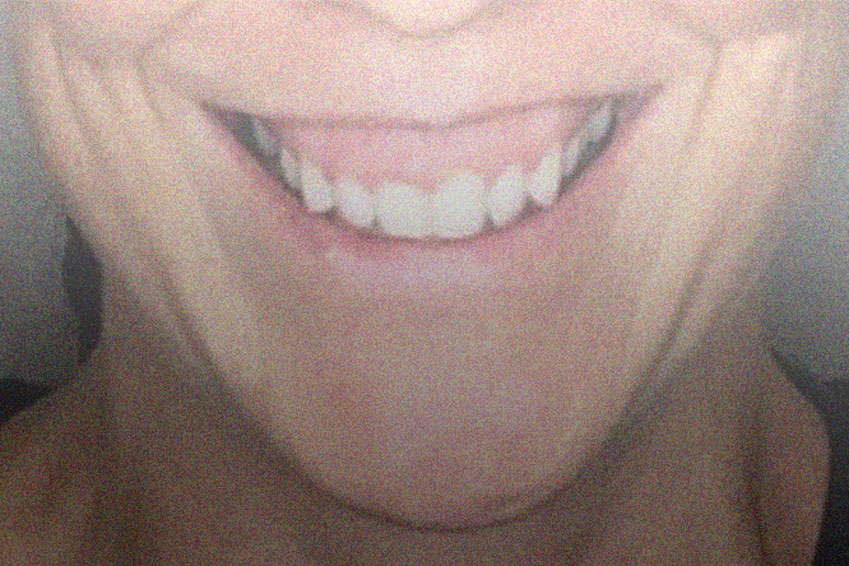If you’re not satisfied with the contour of your smile, you’re not alone.
Sometimes, your smile may seem overly gummy, or just the opposite, too toothy. Here are some causes and solutions you may find helpful if this is an issue with you or someone you know.
When there’s too much gum…
Some people have what is known as a gummy smile. This is caused by a number of possible reasons…
First, naturally thin lips often making the gums look larger by comparison.
Second, your gums could be swollen from gum disease, poor hygiene, or even some types of medication.
Third, the act of “bruxing” or grinding your teeth while sleeping or while under stress could have an effect on your gum/tooth balance.
Fourth, simply due to the “blessings” of genetics, there’s the possibility your gums cover your teeth to the point where they look unnaturally small. The condition is a purely cosmetic one, but of course, if it makes you unhappy, then it’s a problem. What to do?
We have gum liftoff!
For a gummy smile, your dentist may suggest using a technique called gum re-contouring or gum lift to bring prominent gums back down to size. Performed under a local anesthetic, the dentist uses a laser or scalpel to cut away a small amount of gum to give a smoother, more natural-looking line.
If contouring doesn’t quite do the trick, a periodontist might go deeper with a procedure known as crown lengthening. This is where part of the gum and some of the underlying bone is removed, to change the anatomy of the teeth, themselves. Since this surgery involves altering bone and generally requires stitches, recovery is typically longer.
These procedures can not only make you look better, but also improve dental health by creating a tighter seal between gum and tooth, reducing the area where bacteria can lurk.
Recovery from this treatment takes a few weeks, and complications are unlikely.
Did we mention the frenum?
Gums and teeth may be “balanced” but it can still seem like the gums are too large for your smile.
The frenum is that flap of skin connecting your gums with the upper and lower inside of your lips. If you look in the mirror and pull your lips back, you’ll see what we’re talking about.
When the frenum has too tight a grip, it could force the upper lip to rise unnaturally, causing your gums to be overly exposed. A frenectomy, the removal or reduction of the frenum, is a possible solution.
The opposite problem: Too little gum
It’s just as common to have receding gums which reveal more of your teeth than usual. Sometimes it’s the whole mouth that’s affected, sometimes only one or two teeth. Receding gums are usually the result of one of these factors…
- Genetics
- Gum disease
- Poor hygiene (including excessive brushing and flossing)
- Lifestyle factors, such as smoking or drinking alcohol
Receding gums can be more than a cosmetic worry. They not only make your teeth look more prominent, but can also cause future dental problems. If the gums recede far enough to uncover the roots, the possibility of infection, tooth decay and even tooth loss can increase.
Possible Solution? Gum Grafts
Practitioners use a technique to graft gum or palate tissue from other parts of the mouth to build up the receding areas. This improves your smile’s appearance, but it also gives a little extra protection to tooth roots, reducing the chance of decay. Recovery from this procedure takes a little longer, usually around six weeks.
During Recovery
There will naturally be some swelling and discomfort as your gums start to heal. There may be a little pain and increased tooth sensitivity, but this usually only lasts for a week at most.
If the surgery required deeper or more extensive cuts, you might need to wear a dressing until the swelling subsides, and healing has begun.
But in all cases, you’ll need to avoid smoking, drinking alcohol, and use a straw until your mouth fully heals. You’ll also need to take extra care when brushing, and it may be best to avoid flossing until the discomfort has passed. Your dentist will give full advice for your particular situation.
The final word
The therapies we mentioned here are a safe and effective means to giving you a more natural-looking smile to be proud of, and possibly improve your dental health as well. Ask your dentist!


